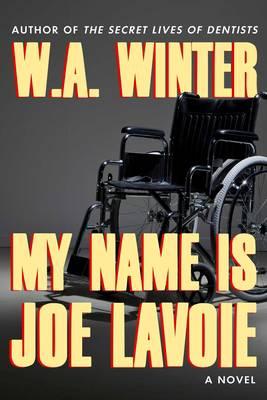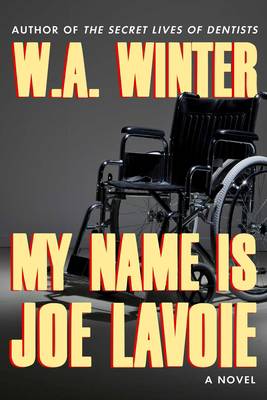
Wil je zeker zijn dat je cadeautjes op tijd onder de kerstboom liggen? Onze winkels ontvangen jou met open armen. Nu met extra openingsuren op zondag!
- Afhalen na 1 uur in een winkel met voorraad
- Gratis thuislevering in België vanaf € 30
- Ruim aanbod met 7 miljoen producten
Wil je zeker zijn dat je cadeautjes op tijd onder de kerstboom liggen? Onze winkels ontvangen jou met open armen. Nu met extra openingsuren op zondag!
- Afhalen na 1 uur in een winkel met voorraad
- Gratis thuislevering in België vanaf € 30
- Ruim aanbod met 7 miljoen producten
Zoeken
Omschrijving
On Thanksgiving Day, 1991, the tattered remnants of the notorious LaVoie crime family gather for a melancholy reunion. Sister Ronnie, a faded beauty who's outlived three husbands and countless lovers, is the host. Her guests include eldest brother Eugene, the family's detested Judas; Adriana, the flamboyant widow of youngest brother Michael, who was presumed killed in Vietnam; and Joe, the sole survivor of a fraternal trio of pint-sized desperadoes who terrorized the Upper Midwest during the summer of 1953. Also present, if only in Joe's fevered imagination, are the ghosts of his ne'er-do-well father and neurasthenic mother; his partners in crime, brothers Jack and Bernard; and his beautiful, otherworldly little sister, Janine. Then there's the specter of H.V. Meslow, the aged, obsessed cop who pursued the brothers to their spectacular end but will not be satisfied until he claims Joe's soul. Crippled by a police bullet during the climactic shootout, Joe has spent the past 38 years in a wheelchair. Now, dying, he's desperate to know--yet terrified to learn--the awful truth behind his family's demise. Years after the brothers' bloody rampage, a local journalist wrote: "People blame poverty, lack of parental control, a failure of the criminal justice system, even the brothers' diminutive stature. I would add to that list some kind of curse--a dark star or black cloud--that shadowed them for decades. The LaVoies couldn't get anything right. They couldn't catch a break. They couldn't win for losing." My Name Is Joe LaVoie is not a true story, but an extensive fiction inspired by a crime spree that shocked the Midwest in the 1950s.
Specificaties
Betrokkenen
- Auteur(s):
- Uitgeverij:
Inhoud
- Aantal bladzijden:
- 329
- Taal:
- Engels
Eigenschappen
- Productcode (EAN):
- 9781645060536
- Verschijningsdatum:
- 16/08/2022
- Uitvoering:
- Paperback
- Formaat:
- Trade paperback (VS)
- Afmetingen:
- 150 mm x 226 mm
- Gewicht:
- 521 g

Alleen bij Standaard Boekhandel
+ 47 punten op je klantenkaart van Standaard Boekhandel
Beoordelingen
We publiceren alleen reviews die voldoen aan de voorwaarden voor reviews. Bekijk onze voorwaarden voor reviews.











